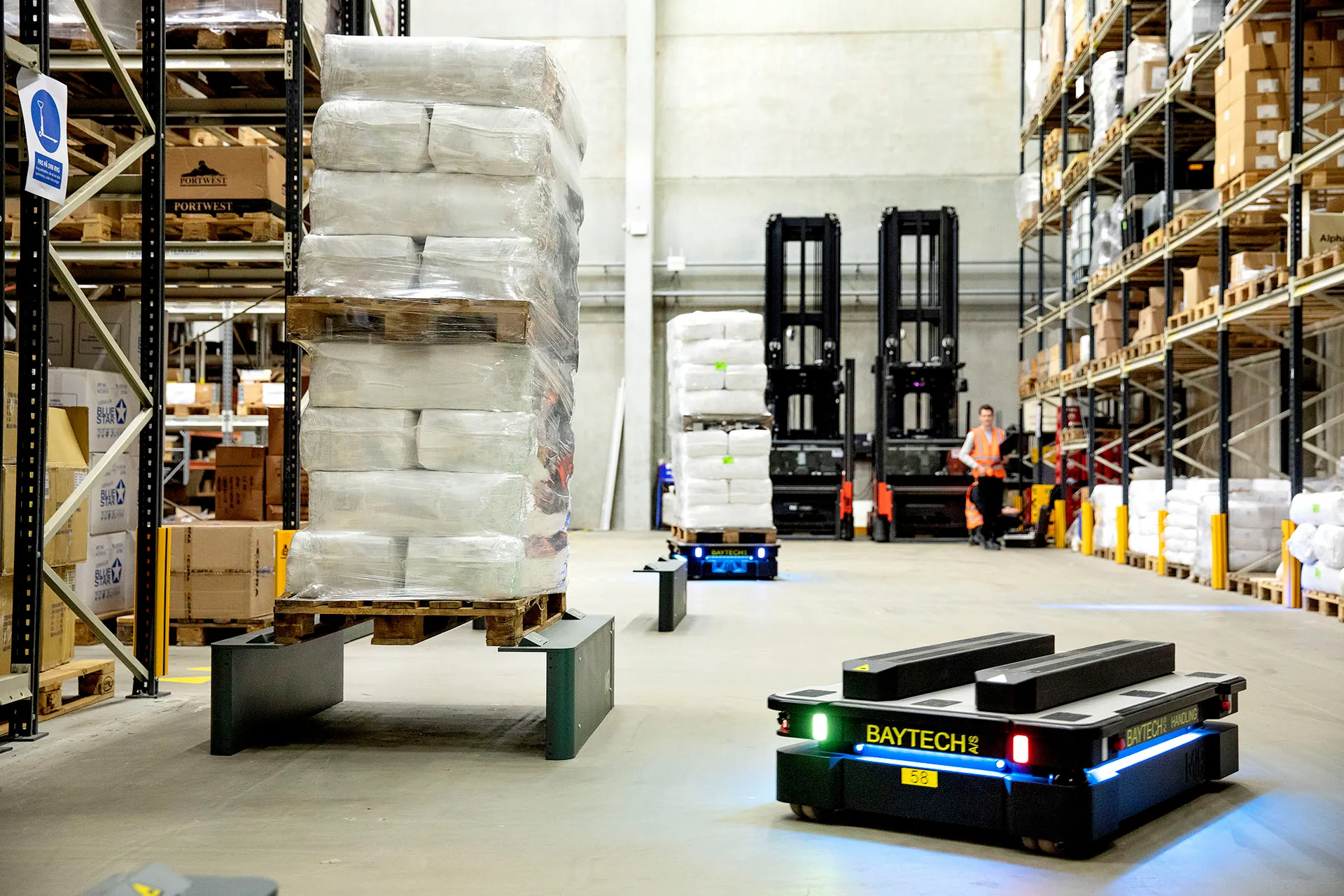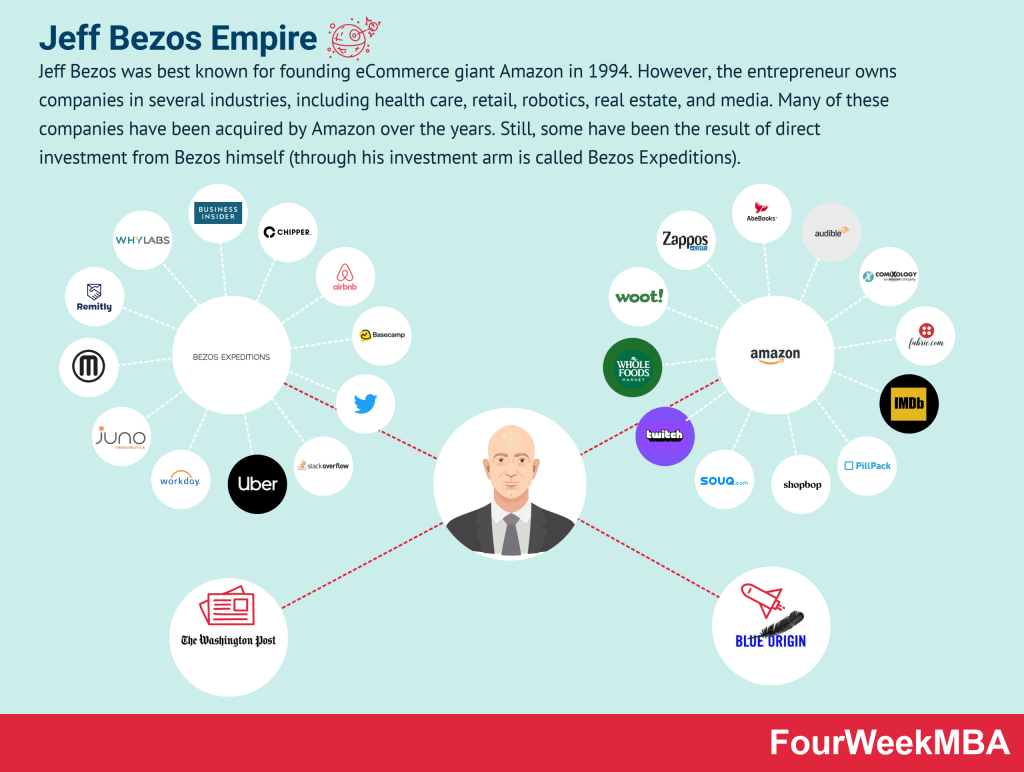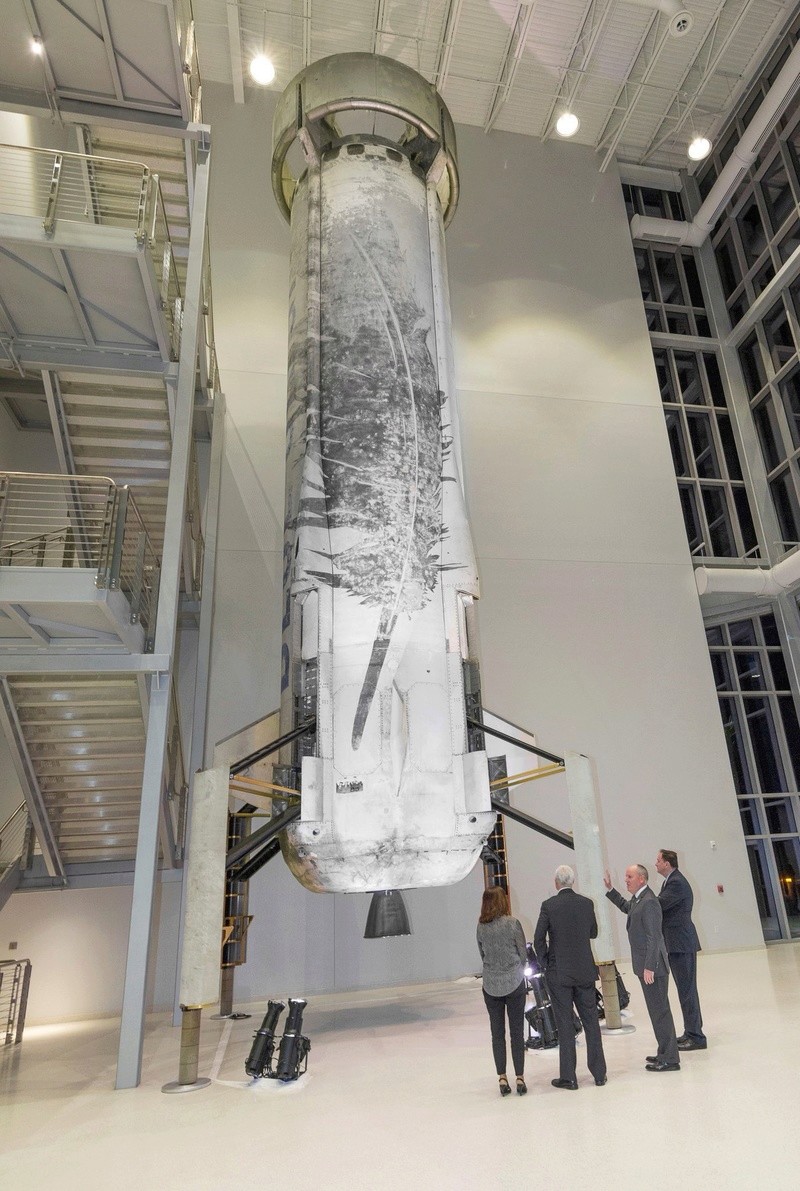Behind the scenes of the logistics revolution, an iconic figure holds a prominent place: Jeff Bezos, the visionary behind Amazon. His leadership has significantly contributed to the rise of logistics automation, propelling the company to new heights. Let’s dive into the fascinating world of this pioneer of automated logistics, and explore the impact of his innovations on the business and technology landscape.
Table des matières
ToggleThe impact of Amazon on modern logistics

Jeff Bezos has transformed how businesses manage logistics by integrating advanced technologies. His visionary approach to automation has allowed Amazon to become an undeniable leader in the sector. By heavily investing in robotics, artificial intelligence, and predictive algorithms, Bezos has not only revolutionized Amazon but has also influenced the logistics industry as a whole.
The impact of these innovations is visible in Amazon’s distribution centers, where thousands of robots collaborate with human workers to optimize inventory management and order preparation processes. This synergy allows the company to significantly reduce delivery times while increasing operational efficiency.
The influence of Amazon on modern logistics is undeniable. Here are some key points that illustrate this transformation:
- Introduction of robotics in distribution centers.
- Use of algorithms to optimize delivery routes.
- Implementation of artificial intelligence for inventory management and demand forecasting.
- Development of a global logistics network enabling one-day delivery.
These innovations have not only allowed Amazon to stay ahead of its competitors but have also pushed other companies to adopt similar technologies to remain competitive. Consequently, the logistics industry is now experiencing an unprecedented rate of automation, highlighting the importance of technological innovation in transforming traditional models.
In conclusion, Jeff Bezos and Amazon have redefined the standards of modern logistics through a bold integration of advanced technologies, allowing the company to stand out in a constantly evolving sector.
The evolution of delivery methods
Jeff Bezos has revolutionized the logistics industry by integrating advanced technologies to optimize Amazon’s operations. His initiatives have transformed how packages are stored, sorted, and shipped, propelling Amazon to the forefront of online commerce.
The impact of Amazon’s footprint is monumental. Warehouses are now equipped with sophisticated robots capable of collaborating with human employees to enhance efficiency. This combination of human labor and robotics has led to reduced order processing times and increased capacity in distribution centers.
Amazon has also heavily invested in cloud computing and artificial intelligence technologies to manage and analyze real-time data. This enables the optimization of delivery paths and precise forecasting of consumer demand, ensuring fast and reliable deliveries.
The evolution of delivery methods has been dramatic. Initially, Amazon relied on traditional delivery partners like UPS and FedEx. Now, the company has developed its own logistics network, including cargo planes, trucks, and drones to cover the final stages of delivery, known as last-mile delivery.
Amazon’s advances also include the Prime program that offers one-day, or even one-hour deliveries in certain areas. This program relies on an ultra-efficient logistics infrastructure, making instant gratification possible for consumers.
Finally, Amazon’s ambitions do not stop there. The company continuously explores new innovations such as autonomous vehicles and delivery drones to further reduce delivery times and costs, while expanding the reach of its services on a global scale.
Technology serving efficiency
By revolutionizing the logistics industry, Jeff Bezos has propelled Amazon to the forefront of global e-commerce. Through a bolder strategy of automation, Bezos managed to transform traditional storage warehouses into cutting-edge hubs integrated into an unparalleled global network.
Amazon has become a model of logistics efficiency due to several key innovations. Picking robots are a central part of this transformation, increasing the speed and accuracy of order fulfillment. Machine learning technologies enable the optimization of delivery routes and improve inventory tracking.
The impact of these innovations is tangible at every stage of the supply chain. Amazon’s warehouses use automated systems capable of sorting, packing, and shipping millions of packages per day. This advanced automation not only reduces costs but also delivery time, thereby enhancing the customer experience.
By leveraging technology for efficiency, Amazon constantly explores new avenues to improve its operations. This includes deploying drones for delivery and using artificial intelligence for predictive inventory management. This relentless pursuit of progress pushes the boundaries of modern logistics.
Here are some examples of the technologies used by Amazon:
- Kiva Robots: These autonomous robots move shelves containing products to employees, reducing travel times and increasing efficiency.
- AI and Machine Learning: They forecast customer demands and optimize inventories.
- Automated Sorting and Packing: Automated systems that ensure fast and accurate sorting and packing of orders.
- Delivery Drones: Currently in testing for even faster and more autonomous deliveries.
The innovations led by Jeff Bezos continue to redefine the standards of logistics and distribution.
- Name: Jeff Bezos
- Contribution: Pioneer of logistics automation
The innovations introduced by Jeff Bezos

Jeff Bezos is a visionary who has revolutionized the logistics sector through automation and artificial intelligence. His initiatives have allowed Amazon to become a global leader in distribution, redefining industry standards.
He has introduced innovations such as robotic warehouses. These intelligent robots significantly reduce order processing times, thus increasing delivery efficiency and speed. The robots can:
- Move entire shelves.
- Perform real-time inventory.
- Reduce picking errors.
Jeff Bezos has also implemented predictive logistics systems based on data analysis. These systems enable the forecasting of future customer needs and optimize inventory accordingly. The main benefits include:
- A decrease in storage costs.
- Faster deliveries.
- Increased customization of offers.
Finally, the use of drones for deliveries is another significant innovation. By reducing delivery times and improving access in difficult areas, drones open new perspectives for online commerce. This forward-thinking approach demonstrates Jeff Bezos’s commitment to using cutting-edge technology to transform the logistics sector.
Automated warehouses
Jeff Bezos has transformed global logistics through spectacular innovations. One of the most remarkable is the introduction of automation in warehouses, an area where Amazon excels today. He has leveraged the latest technological advances to optimize processes and improve efficiency.
The innovations introduced by Jeff Bezos include the use of Kiva robots, now integrated into many Amazon distribution centers. These robots are responsible for inventory management and product organization, thereby increasing order processing speed.
Automated warehouses are another example of Jeff Bezos’s vision. They use advanced management systems to coordinate tasks between robots and employees. This not only reduces human errors but also speeds up the process from start to finish.
Here are some characteristics of Jeff Bezos’s automated warehouses:
- Smart robots for inventory management
- Advanced management systems for coordination
- Reduction of human errors
- Increased processing speed
By heavily investing in technology, he has enabled the company to meet the growing demand from consumers while maintaining high standards of quality and efficiency. This visionary approach continues to place Amazon at the forefront of logistics innovation.
The use of drones in delivery
Jeff Bezos, founder of Amazon, has transformed the logistics sector through technological innovation. His revolutionary contributions in logistics automation have reshaped industry standards, allowing for more efficient and rapid management of supply chains.
Among the many innovations introduced by Jeff Bezos, the integration of robots in warehouses is at the top of the list. In 2012, Amazon acquired Kiva Systems, a company specializing in autonomous robots. These machines, now called Amazon Robotics, move entire shelves of products to human workers, significantly reducing picking and packing times.
The main innovations introduced include:
- The adoption of robotic systems in distribution centers
- The use of artificial intelligence to optimize routes and tasks
- The deployment of new sorting and scanning technologies for packages
Another essential aspect of the transformations initiated by Bezos is the use of drones in delivery. With the launch of the Prime Air initiative, Amazon has explored using drones to deliver packages in less than 30 minutes after ordering. These drones, equipped with advanced sensors and cameras, navigate autonomously, significantly reducing delivery times and the costs associated with traditional transport.
The benefits of delivery drones include:
- Reduced delivery times
- Lower logistical costs
- Ability to serve rural and hard-to-reach areas
Through these advancements, Jeff Bezos has not only redefined expectations in logistics but also laid the groundwork for a future where automation and efficiency play a crucial role in global commerce.
The challenges and stakes of automation
L'automatisation a révolutionné mon business cette année, voici comment. 👇 pic.twitter.com/SDIdC5bDBx
— Arthur (@ZalidanTV) July 1, 2024
Jeff Bezos, the founder of Amazon, has transformed the logistics industry by adopting advanced automation technologies. Technological innovation has always been at the core of his strategy, allowing Amazon to position itself as a leader in the distribution sector.
The tech giant has deployed hundreds of thousands of robots in its distribution centers. These machines automate sorting, movement, and packaging tasks, significantly reducing delivery times. By relying on artificial intelligence and sophisticated algorithms, Amazon optimizes its inventory and enhances operational efficiency.
The challenges and stakes of automation
Despite its obvious advantages, automation presents major challenges. The initial cost of robotic technologies is high and requires substantial investment. Furthermore, integrating these technologies into existing processes can disrupt operations initially.
In terms of workforce, automation raises ethical questions. If robots replace certain manual tasks, thousands of jobs could disappear, creating concerns about the future of employment in the sector. However, Bezos argues that automation also creates new types of jobs, notably in machine maintenance and management.
Safety remains a major concern. The interaction between humans and machines must be rigorously controlled to avoid accidents. Strict safety protocols and AI-controlled systems are in place to ensure a safe working environment.
The benefits of automation should not be underestimated. In addition to reducing delivery times, automation allows for managing larger order volumes during peak periods, such as the holiday season. It also improves order accuracy, reducing errors and returns.
For visionary leaders, automation is an opportunity to rethink traditional business models. By integrating innovative technologies, they can not only increase efficiency but also provide a better customer experience.
The ethical questions surrounding automation
Jeff Bezos has revolutionized the logistics sector with a bold vision of automation. Under his leadership, Amazon has integrated advanced technologies such as Kiva robots, which have transformed traditional warehouses into ultra-efficient processing centers. This innovation has led to impressive productivity gains and has redefined industry standards.
Automation, while beneficial in many aspects, presents major challenges. Implementing new technologies requires significant investments, both in terms of equipment and ongoing employee training. Moreover, transitioning to automated processes can lead to temporary operational disruptions, impacting the supply chain.
The stakes are not limited to financial and logistical aspects. The introduction of automation must also take into account change management among staff. Maintaining employee motivation and engagement is crucial for a successful rollout.
Automation raises important ethical questions, particularly regarding the replacement of human jobs by machines. The massive deployment of robots and artificial intelligence in warehouses raises concerns about the future of certain professions and the risk of technological unemployment.
It is essential to find a balance between technological innovation and social responsibility. Companies must consider professional retraining programs and training initiatives to help employees adapt to this new environment. Staying attuned to the social impacts of automation is crucial for a smooth transition to a more automated future.
- Investments in equipment and training
- Change management among staff
- Professional retraining programs
- Continuous training initiatives
The impact on employment and workers
Jeff Bezos, the founder of Amazon, is a visionary who has transformed the logistics sector by massively automating its warehouses. Through advanced technologies such as artificial intelligence and robotics, Amazon has revolutionized inventory management, order processing, and product delivery. Bezos has successfully identified and leveraged the opportunities offered by these technological innovations, placing Amazon at the forefront of the industry.
The challenges and stakes of automation are numerous. Integrating robots into warehouses requires substantial investments in infrastructure and training. Coordination between machines and human workers remains a significant challenge, involving ongoing efforts to refine artificial intelligence algorithms. Furthermore, ensuring the safety of automated operations is paramount, which necessitates the development of advanced monitoring systems.
The impact on employment and workers is a major concern. While automation has allowed Amazon to reduce costs and accelerate delivery times, it has also led to significant changes for employees. Here are some points to consider:
- Redistribution of tasks: manual jobs are increasingly being replaced by roles that require technical skills to manage and maintain robots.
- Creation of new jobs: even as some positions are eliminated, new roles are emerging, particularly in robotic maintenance and programming.
- Social impacts: the transition to increased automation can create tensions and require workers to adapt to new technologies.
Jeff Bezos’s initiative in logistics automation shows how technological innovation can transform an entire industry. However, it is crucial to wisely manage the human and organizational challenges to ensure a smooth transition.
“`





